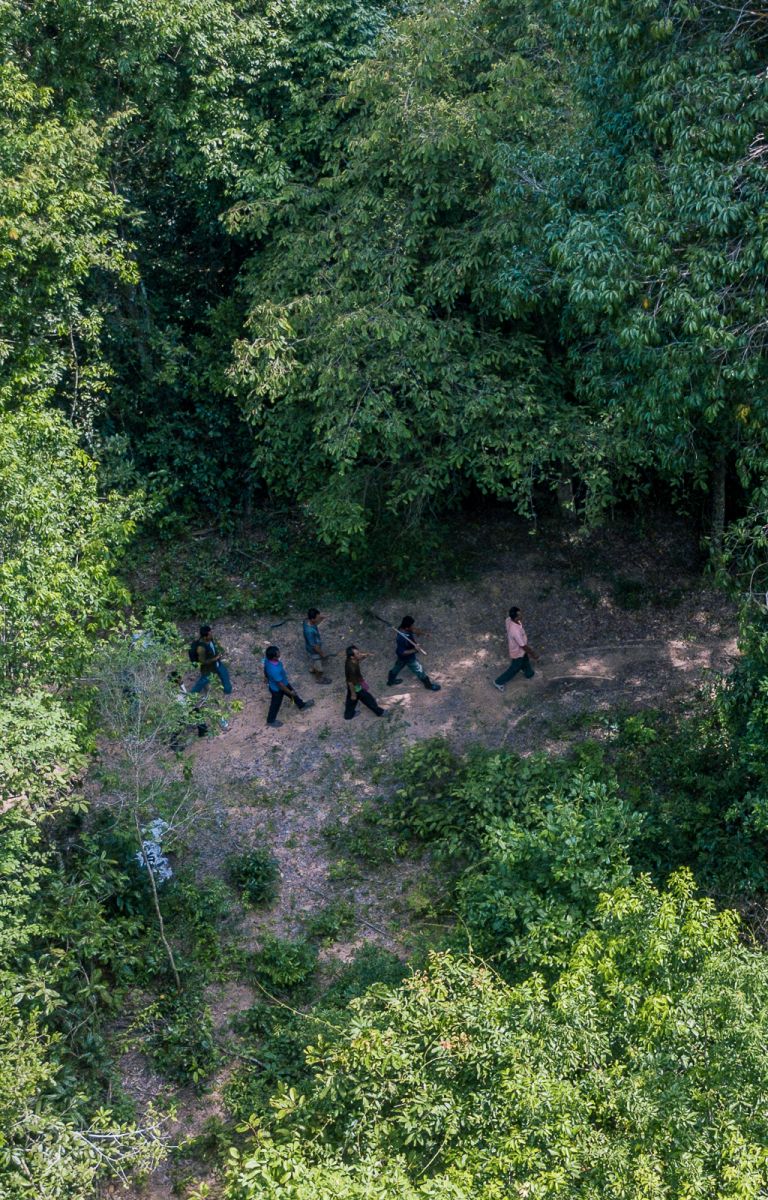

The Asia–Pacific region faces the lingering effects of the COVID-19 pandemic, rising inequality and the ever-increasing impacts of climate change. These factors reinforce how important it is that people are empowered to equitably and sustainably manage local forests and wider landscapes. This is the core of RECOFTC’s vision, and it will guide the organization’s work in the year ahead.
RECOFTC will continue to focus on scaling up community forestry, supporting research on forest landscape governance, helping communities to mitigate and adapt to climate change and ensuring that fair benefits flow to them from market-based and non-market-based carbon initiatives. It will also continue to improve forest education curricula and expand its offering of e-courses to make learning widely accessible.
Here are anticipated highlights from the next fiscal year.
Ensuring that forest communities benefit from carbon initiatives
Indigenous and local communities manage about half the world’s land and more than one fifth of forest carbon. Despite being the primary stewards of the world’s remaining natural forests, they receive just 1 percent of international climate finance.
Direct investments in these communities are crucial for achieving the internationally agreed goal of limiting global heating to 1.5 degrees Celsius. RECOFTC believes that voluntary carbon markets can be part of the solution but only if they meet high-quality standards.
Recognizing the potential and the risks, RECOFTC is developing carbon projects in its priority landscapes in the Asia–Pacific region. It will engage with companies and other investors on behalf of local communities so that the highest standards of social and ecological safeguards are maintained. RECOFTC will also work to ensure that communities receive a fair share of the benefits flowing from climate finance.
One way RECOFTC will do this is through the Peoples Forests Partnership (PFP), which it launched with partners in 2021. The founding members include three corporations, two international non-profit organizations and three organizations representing Indigenous Peoples and local communities. The PFP has already created a set of principles for developing and implementing carbon projects that direct finance to Indigenous Peoples and local communities. These were authored by an expert who is a member of an indigenous group in Latin America.
Scaling up community forestry
RECOFTC’s work with communities, governments and civil society has proved that community forestry can contribute to addressing many challenges—climate change, deforestation, loss of biodiversity, land tenure insecurity, poverty, gender inequality, social exclusion and more.
As it has done throughout its history, RECOFTC will continue to call on countries and the global community to scale up community forestry in the Asia–Pacific region and beyond. In Southeast Asia alone, the area of forests managed by communities doubled between 2010 and 2020. By 2030, it could reach 30 million hectares, a fivefold increase in only 20 years.
This would ultimately benefit millions of people living in and near forests as well as the forests themselves. But, as RECOFTC Executive Director David Ganz explains, it will require more inclusion, investment and innovation.
“Scaling up community forestry will require a wholehearted commitment to diversity and inclusion of marginalized groups, such as women, Indigenous Peoples and youth,” says Ganz. “It will also require innovative policies, regulations and models of community forestry. And it will need direct investment in communities through carbon markets, landscape restoration and secure supply chains for forest products.”
Expanding e-learning
RECOFTC is the premier knowledge hub for community forestry in the Asia–Pacific region. With a long history of building capacities through in-person training, RECOFTC has now embraced e-learning and will expand its online training in the year ahead.
RECOFTC’s Learning Gateway will host a Burmese language version of its popular Community Forestry 101 e-course, adapted for learners in Myanmar. There will also be a new e-course in 2022 on inclusion in community-based enterprises developed within community forestry.
As RECOFTC’s experience has shown, such enterprises have the potential to improve the lives of their members and others who depend on forests. They also incentivize forest conservation and restoration, both of which are vital in the fight against climate change. But women and other marginalized groups are often excluded from participating in and benefiting from community forestry enterprises.
The new e-course will explain how and why exclusion occurs, provide practical ways to promote inclusion and present a business case for doing so.
